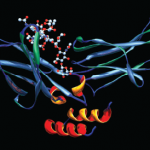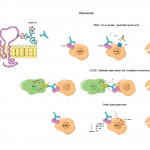Pulmonary arterial hypertension (PAH) in connective tissue disease (CTD) features significant morbidity and mortality. Standard therapies with endothelin receptor antagonists and phosphodiesterase-5 inhibitors have shown some clinical improvement in patients, but these clinical improvements have proved modest when compared with other types of PAH. As our case below suggests, rituximab may show promise as a…




